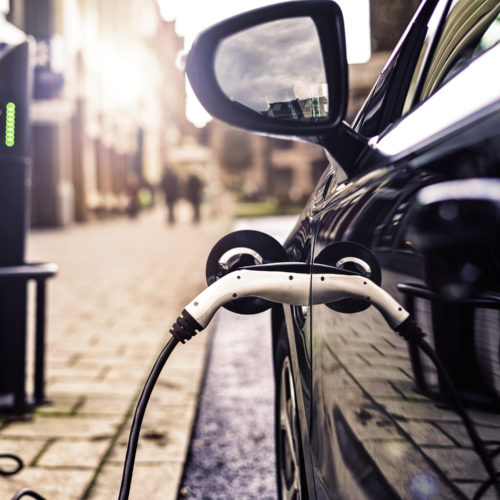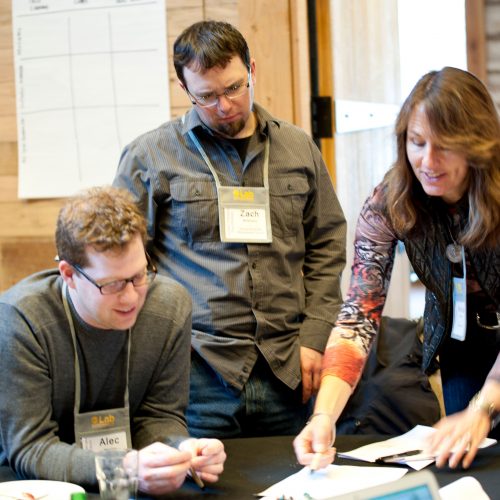
eLab Accelerator 2018
Testing Smart Load Growth through Enhanced EV Readiness
Electric Vehicle in Park Charging station in UK Street

Project Objective:
- Define 1-2 pilot concepts and outline why it is worth testing
- Develop work plan for post-accelerator
Stakeholders
Milestones
Timeline
Potential barriers
Metrics

Team Members
- Megan Hoye, Engagement Manager, Center for Energy and Environment
- Aakash Chandarana, Regional VP of Rates and Regulatory Affairs Xcel Energy
- Alex Duval, Principal, Duval Companies
- Matthew Blackler, ZEF Energy
- Timothy Sexton, Director of Transit and Active Transportation, MN DOT
- Paul Hernandez, Director of Public Policy and Government Relations, Envoy There
- Lynn Daniels, Manager, RMI
Project Description
Electric vehicle (EV) penetration is slowly increasing in Minnesota due to naturally occurring market forces, but what customer offerings and environmental factors can beneficially shape load and speed conversion to EVs? Exploring this question will help Minnesota utilities, communities, and policy makers understand the ratepayer and carbon reduction value of vehicle electrification efforts and investments. This question can be tested in a number of near-term advanced energy districts with carbon or resiliency goals. Here a suite of enhanced EV readiness factors such as customer engagement, education offerings, advanced infrastructure, and innovative ownership structures can be tested. The value of this environment can then be compared to business as usual penetration rates and the extent to which customers engage more quickly and persistently with programs, rates, and customer communications. These sites become ideal environments for studying the limitations to shaping EV load growth and allows for dynamic learning and iterative utility pilots. eLab will provide the necessary opportunity to bring together a diverse group of stakeholders to define what an ideal EV ready environment looks like, key factors that should be tested, and metrics for measuring success. Community leaders, developers, building owners/anchor tenants, utility regulatory leaders, environmental advocates, and user-centered researchers will provide a balance of leaders and “doers” to turn this work into tangible testing and piloting in Minnesota.
Progress Made to Date (pre-Accelerator)
This exact team has not yet worked together. However, members of the team have worked separately to move the Rice Creek Commons project to a phase that is ready for energy innovation and resiliency demonstrations.
Project Background Information
Background information for Rice Creek Commons can be found at (http://ricecreekcommons.com/energy/), along with opportunities for electric vehicle demonstrations and other innovative energy technologies and customer engagement.
